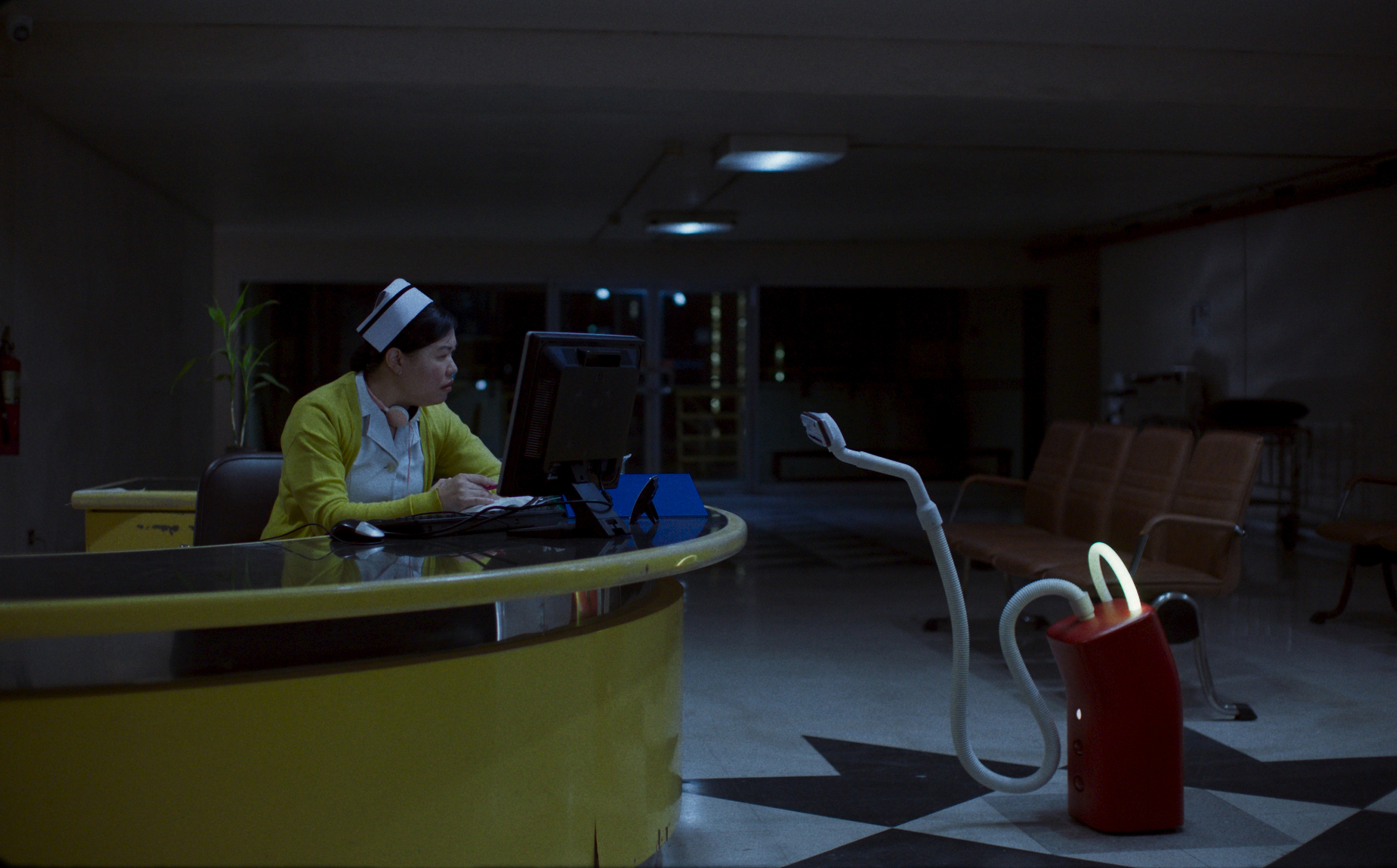A Useful Ghost
Pee Chai Dai Ka
VERDICT: Ratchapoom Boonbunchachoke's bold and beautiful debut marks a filmmaker to watch.
In the middle of the Venn diagram of Apichatpong Weerasethakul, Quentin Dupieux, and Charlie Kaufman, you might find Ratchapoom Boonbunchachoke and his debut feature film A Useful Ghost. Marvellously inventive, what begins as an unlikely ghost story and tragic romance, evolves into an affecting look at what haunts Thailand’s national memories, and the dreams of the future that can never fully shake the past.
March (Wisarut Himmarat) is the heir of an industrialist family, but following the sudden death of his fiancé Nat (Davika Hoorne) after the miscarriage of their first child, he can hardly stay focused on business. But everything changes when Nat returns as a ghost, with her spirit taking residence inside an Airjazz vacuum cleaner. March is thrilled but his mother Suman (Apasiri Nitibhon) and the family aunties and elders are horrified. A plan is soon launched to get rid of the spectre, but it turns out Nat has her own knack for disposing of disruptive ghosts. Soon, she strikes a deal with Dr. Paul (Gandhi Wasuvitchayagit), a duplicitous government minister that finds Nat using her powers in the spirit world for more nefarious ends.
Weaving together wry humor, tender romance, and supernatural drama with ease, Boonbunchachoke establishes an impressively singular narrative language that will be exciting to see develop. There are few filmmakers that unfold humor and genuine emotion at a meditative pace, yet also include a scene such as an amusing makeout between March and a vacuum cleaner. The director’s firm grip on tone is never more evident than in the film’s back half that grapples with Thailand’s lingering trauma from the 2010 political crackdowns and 1976 Thammasat University massacre. In his own endearingly and entertainingly roundabout way, Boonbunchachoke explores the older generation’s resentment at being made to confront their actions that left scars on the generation that followed. The film also questions the worth of maintaining an unremitting capitalist machine at the cost of the very fabric of family and society.
These ideas are wrapped inside a bouquet of gorgeous production design by Rasiguet Sookkarn, bright, beautifully composed shots by cinematographer Pasit Tandaechanurat, and the lush, sprightly score by Chaibovon Seelukwa. It’s a picture of rigorous composition, right up until its climactic sequence, an act of violent, cathartic vengeance against the political upper class. At first look, the finale might seem incongruent to the rest of the picture, until you remember that cinema is the ultimate dream, and where better for the ghosts of history to find justice where life could not.
Director: Ratchapoom Boonbunchachoke
Screenplay: Ratchapoom Boonbunchachoke
Cast: Davika Hoorne, Witsarut Himmarat, Apasiri Nitibhon, Wanlop Rungkumjud, Wisarut Homhuan
Producers: Cattleya Paosrijaroen, Soros Sukhum, Karim Aitouna, Tan Si En
Cinematography: Pasit Tandaechanurat
Production design: Rasiguet Sookkarn
Costume design: Phim Umari
Editing: Chonlasit Upanigkit
Music: Chaibovon Seelukwa
Sound: Lim Ting Li
Production companies: 185 Films (Thailand), Haut Les Mains (France), Momo Film Co (Singapore)
World sales: Best Friend Forever
Venue: Cannes Film Festival (Critics Week)
In Thai
130 minutes


